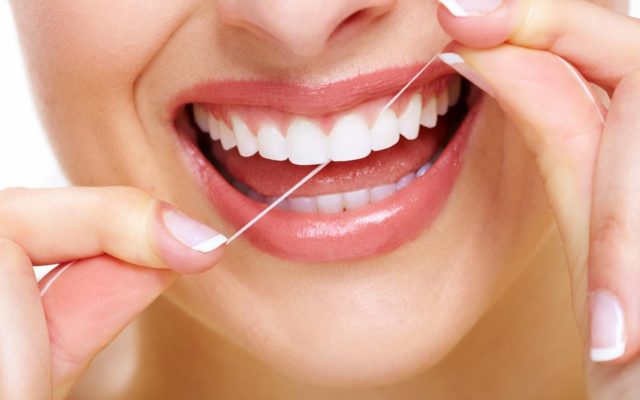Contrary to popular belief, flossing is an important oral hygiene practice. Therefore, you should floss frequently. Keep in mind that the mouth is home to thousands of microorganisms. Consequently, brushing your teeth may not be enough. Food particles can accumulate on your teeth, causing the formation of plaque. In turn, plaque leads to dental cavities and caries. Usually, a standard toothbrush cannot reach all the areas of the teeth. Luckily, teeth flossing helps you access all hard-to-reach areas of your teeth. And this keeps your teeth healthy.

Dental plaque
First, let’s look at how plaque can harm your teeth. Over time, plaque builds up on your teeth and causes bad breath or halitosis. Plaque can also cause tooth discoloration. Even worse, plaque can lead to inflammation and irritation on your gums. Plaque produces acid that wears out the enamel with time. As a result, plaque is responsible for causing dental caries, gingivitis, and decay.
When plaque causes gingivitis, it can lead to periodontal issues that damage the bone structure holding the teeth. In turn, this leads to tooth loss. Health experts also report that gum diseases lead to severe health conditions like diabetes and heart attack. It is therefore essential to floss and brush your teeth. In this article, we look at some of the benefits of teeth flossing.
How Often Should You Floss?
Generally, dental experts recommend teeth flossing at least once a day. However, you have to floss using the correct technique. Otherwise, flossing won’t protect you from dental diseases. When flossing your teeth, you have to take your time and focus in between the teeth. Don’t floss in a hurry; otherwise, you might not be able to remove plaque buildup. At the end of the day, ensure you floss thoroughly and slowly. You can always floss after or before brushing your teeth. The order of this does not matter, as long as you floss correctly. Also, you can floss in between the day, especially if you are removing stuck food particles between your teeth.
Getting rid of plaque
One of the main benefits of teeth flossing is that it helps you remove plaque from your teeth. Plaque is often a sticky layer on your teeth and gum line. It may be challenging to see plaque, but you can always remove it by flossing. Plaque primarily results from sugary and starchy foods and attacks the enamel. Hence, this harmful substance exposes you to dental cavities and gum diseases. When you floss your teeth, you remove any stuck food particles in between the teeth. Thus, you reduce the formation of plaque. Flossing also helps you get rid of plaque from your teeth.
Reduces the risk of cavities
Teeth flossing teeth reduces the risk of dental cavities. This is because flossing helps you get rid of all food buildup in between your teeth. Hence it keeps your teeth clean at all times. As a result, you are unlikely to get a dental cavity. Dental experts recommend teeth flossing for best results. Remember, cavities can lead to dental decay and tooth loss.
It helps prevent gum disease
Another benefit of teeth flossing is that it protects you from gum diseases. Gum diseases are common when plaque builds up between the teeth and the gum line. Gingivitis is positively related to a wide range of severe oral infections like periodontitis. Periodontal problems weaken the bone supporting your teeth. If left untreated, it affects your overall health. Flossing your teeth at least once a day can keep your gums healthy.
Reduces bad breath
Did you know that flossing can help you prevent bad breath? Bad breath is common when plaque builds up on the teeth. Food particles that stay for a long time in between your teeth often start to decay. And this makes your mouth smell bad. Teeth flossing prevents the accumulation of food particles in your teeth. Thus, it prevents you from experiencing bad breath.
It prevents you from cardiovascular complications
A good number of health experts report that dental problems are connected to heart conditions. For example, serious gum diseases are linked to heart attacks. Based on previous studies, individuals who practised good oral hygiene suffered less from cardiovascular diseases. Flossing your teeth protects you from gum and teeth diseases.
Affordable teeth cleaning technique
Unlike professional teeth cleaning procedures, flossing is an inexpensive method of cleaning your teeth. Floss goes for as little as $10. The price varies depending on the floss you purchase. Moreover, you don’t have to buy any additional cleaning products to accompany floss. Not to mention, floss is quite simple to use.
Conclusion
Ultimately, it would be best if you flossed your teeth at least once a day. Nevertheless, ensure you floss properly. Teeth flossing protects you from dental and gum diseases. In turn, it improves your overall health.



